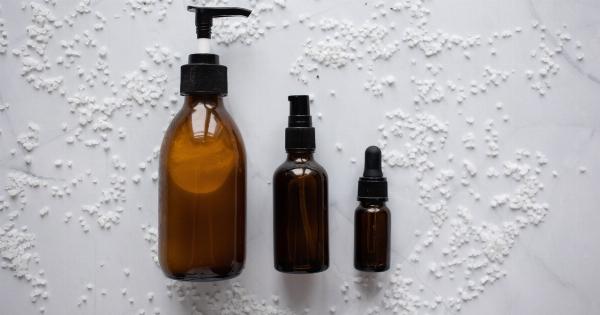Bloating is an uncomfortable and often embarrassing condition that affects many individuals. It is characterized by a feeling of fullness or tightness in the abdomen, accompanied by distention or swelling.
Bloating can be caused by a variety of factors, including poor diet, gastrointestinal disorders, and even stress. In this guide, we will explore the causes of bloating and provide tips from a gastroenterologist to help you banish bloating for good.
The Role of Diet in Bloating
One of the most common causes of bloating is a poor diet. Certain foods are known to promote bloating or worsen existing bloating symptoms. Some common culprits include:.
- Fatty foods: Fried foods, fatty meats, and greasy snacks can slow down digestion, leading to bloating.
- Dairy products: Many individuals have a lactose intolerance, which can cause bloating and other digestive issues.
- Carbonated beverages: The bubbles in carbonated drinks can introduce air into the digestive system, leading to bloating.
- Beans and legumes: These foods contain high amounts of fiber and complex carbohydrates that can ferment in the gut, causing bloating.
- Artificial sweeteners: Sugar substitutes like sorbitol and xylitol are known to cause bloating and may have a laxative effect.
Gastrointestinal Disorders and Bloating
Bloating can also be a symptom of various gastrointestinal disorders. Conditions such as irritable bowel syndrome (IBS), inflammatory bowel disease (IBD), and gastroesophageal reflux disease (GERD) often present with bloating as a common symptom.
These disorders can disrupt the normal functioning of the digestive system, leading to bloating, abdominal pain, and other uncomfortable symptoms.
If you experience frequent or severe bloating along with other digestive symptoms, it is important to consult with a gastroenterologist for a proper diagnosis and treatment plan.
They can perform diagnostic tests and recommend appropriate interventions to manage the underlying condition causing bloating.
Lifestyle Changes to Combat Bloating
In addition to addressing dietary triggers and underlying medical conditions, there are several lifestyle changes that can help alleviate bloating:.
- Eat smaller meals: Consuming smaller, more frequent meals can help prevent overloading the digestive system and reduce bloating.
- Chew slowly and thoroughly: Properly chewing food allows for better digestion and reduces the amount of air swallowed, which can contribute to bloating.
- Avoid swallowing air: Minimize swallowing excessive air by avoiding gum, carbonated drinks, and drinking through a straw.
- Incorporate physical activity: Regular exercise improves digestion and helps to prevent constipation, which can contribute to bloating.
- Manage stress: Stress can negatively impact digestion and contribute to bloating. Engage in stress-reducing activities such as yoga or meditation.
Over-the-Counter Remedies
For occasional bloating, there are several over-the-counter remedies that can provide temporary relief. These include:.
- Simethicone: This medication works by breaking down gas bubbles in the digestive system, relieving bloating and gas-related discomfort.
- Activated charcoal: Charcoal tablets or capsules can help absorb excess gas in the stomach, providing relief from bloating.
- Probiotics: These supplements contain beneficial bacteria that can restore the balance of gut flora, potentially reducing bloating and improving digestion.
While these remedies can offer short-term relief, it is essential to address the underlying causes of bloating for long-term management.
Consult with a healthcare professional, such as a gastroenterologist, for personalized advice and treatment options.
When to Seek Medical Attention
While occasional bloating is common and usually harmless, there are instances where medical attention should be sought:.
- Severe or persistent bloating that does not improve with lifestyle changes or over-the-counter remedies.
- Accompanying symptoms such as blood in the stool, unexplained weight loss, or severe abdominal pain.
- Bloating that significantly interferes with daily activities and quality of life.
In these situations, it is crucial to consult with a healthcare professional for an accurate diagnosis and appropriate medical intervention.
In Summary
Bloating can be a bothersome and uncomfortable condition, but with the right knowledge and guidance, it can be managed effectively.
By identifying dietary triggers, managing underlying gastrointestinal disorders, making lifestyle changes, and seeking medical attention when necessary, you can banish bloating and improve your overall digestive health.






























